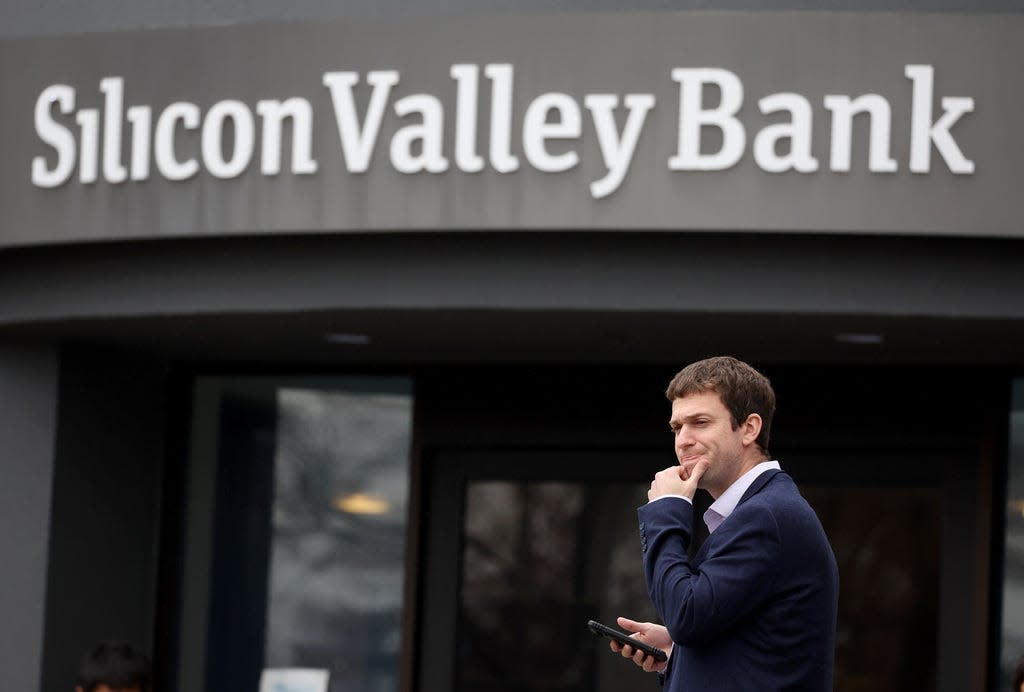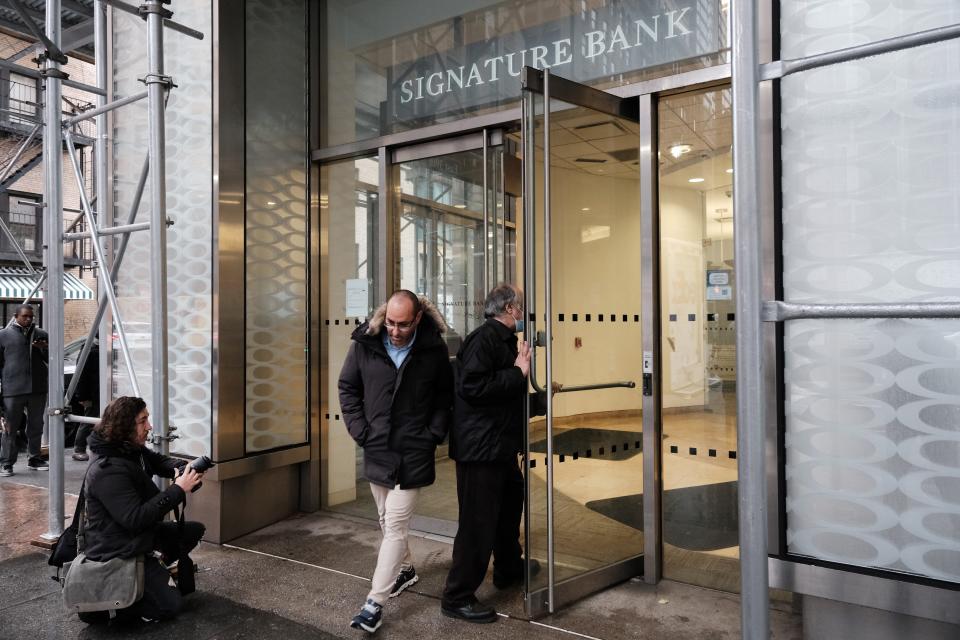How to know if your money is safe following recent bank collapses

Online searches for "Is my money safe?" have risen 43% above the average volume amid news of the collapse of California's Silicon Valley Bank and New York City-based Signature Bank.
It wasn't just customers on the coasts who were affected. Some Iowa tech startups had money in Silicon Valley Bank, as well.
How can you ensure your bank or credit union deposits are safe?
Is your bank or credit union federally insured?
On the door of your bank or credit union branch, or somewhere on its website, you will probably find the logo of the Federal Deposit Insurance Corp. or the National Credit Union Administration. Those federal agencies insure deposits at all member institutions up to $250,000 ― although in the case of the Silicon Valley and Signature collapses, the Biden administration decided to cover all losses to stave off what some feared could be a wider crisis.
How does federal deposit insurance work?

The $250,000 limit is per depositor, per insured bank for each account ownership category, with the exception of some accounts including, investment accounts, life insurance policies, and safe deposit boxes or their contents.
Here are some of the types of accounts the FDIC and NCUA insure:
Checking accounts
Savings accounts
Negotiable order of withdrawal (NOW) accounts
Money market deposit accounts (MMDA)
Certificates of deposits (CDs) and other time deposits
Cashier’s checks, money orders, and other official items issued by banks
More:Far-reaching Silicon Valley Bank collapse affects some Iowa startups, lenders
What if I have more than $250,000 in my account?
Consider opening a joint account or moving some funds to another bank so that FDIC protections apply to all your money.
According to Greg McBride, chief financial analyst at Bankrate, "a married couple can easily protect a million dollars at the same bank by each having an individual account and together having a joint account." The FDIC provides insurance up to $500,000 to a joint account held with someone such as your spouse and up to $250,000 each on two individual accounts.
In addition, you can also move money to another financial institution protected by the FDIC or NCUA. Since it is not the individual depositor who is insured, but the account, spreading your money across financial institutions can give you more coverage.
For example, if you have a side job or small business, it may make sense to open an account at a different institution than where you personally bank, not only to keep your personal and business finances separate but to make sure both accounts remain under the FDIC limit.
Which banks are safe from collapse?
The Financial Stability Board, an international organization that was created after the 2008 crisis, maintains a list of banks that are colloquially considered "too big to fail."
In addition, the U.S. created a Financial Stability Oversight Council after the crisis to determine which banks are systemically important to banking stability in the country. The Counciland FSB place unique restrictions on these banks ― for instance, how much of depositors' money they can lend out and how much cash they need to have on hand.
The restrictions are designed to add an extra layer of protection beyond what the banks would if left to their own devices, according to the architects of the post-2008 regulations. That's not to say that these banks can't run into trouble but it's safe to say the government wouldn't allow them to collapse because it would pose so much danger to the overall financial stability of the country.
On the top of the list is JPMorgan, the nation's biggest bank. Others on the list include:
Citigroup.
Barclays.
BNP Paribas.
Morgan Stanley.
Wells Fargo. The San Francisco-based bank is the Des Moines metro's largest private employer.
While going with one of the big banks may provide some extra safety, there are many advantages to doing business with a local bank. Just keep in mind that the biggest factor in the recent bank collapses was the individual banks' concentration of business in one sector ― in Silicon Valley's case, tech startups, which depend largely on borrowed funds and were vulnerable to rising interest rates, and in Signature's case, cryptocurrency. Whomever you keep your money with, look for an institution with balanced investments that can withstand a downturn in a single sector.
The Associated Press and USA Today contributed to this article.
This article originally appeared on Des Moines Register: How to know if your money is safe after bank collapses

